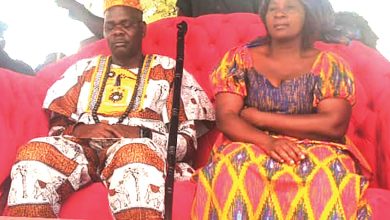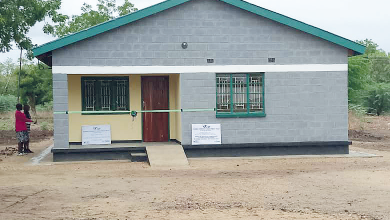Farce of a new dawn
Spare a moment to figure out how a nation was promised transformation only to get theatre.
The absurdity playing before us deserves grudging admiration.
Here we have a man in cloaks of righteousness who ascended with lofty sermons of servant leadership, moral clarity and promises to steer the ship out of rough waters, but his rule has curdled into something so farcical it almost demands applause for its audacity.
The self-styled shepherd of a weary nation, who promised new dawn and clean hands, is now immobilised by neglected corruption, inaction, nepotism and protecting corrupt allies caught red-handed.
He built his regime on sermons and solemn oaths, only to be buried beneath the very contradictions he once condemned.
From procurement of fertilisers from pharmacies to abuse of Covid-19 funds and endless foreign trips, scandals are no longer aberrations, but symptoms of a deeper rot.
Pray hard, deny it, form a commission, blame the opposition or attribute all problems to disasters, these are now the reflexes of a regime that believes piety can mask paralysis.
Lawsuits and arrests for show, governance by press release and broken promises are the order of the day.
Whenever anyone dares to speak the truth or ask for more from those in power, a peculiar hostility emerges.
Respected voices, people once thought to be wise, now labelled critics haters high on bitterness.
Mediocrity has been recast as maturity and low expectations sold as realism as those close to power defend failure as if it were a virtue.
Meanwhile, beneath the polished podiums and smiling headlines, loyalty is now a commodity as crowds for hire clap for the highest bidder.
But Malawians have not forgotten.
They remember the legacy of fear, repression, surveillance and silent obedience. Now, the haunting past has returned in full display, with panga-wielding mobs hacking civil servants and protesters who dared exercise their right to speak and cry for a better Malawi for all.
This is not a resurrection. It is a relapse, a dangerous descent into the very darkness this nation fought to escape in the early 1990s.
The faithful, once devoted to the gospel of a better Malawi for all, now whisper among themselves with confusion and weariness.
Even within the party’s hardened faithful, cracks have appeared, as regret and silence quietly replace loyalty.
A movement fuelled by historic pride and yearning for change now limps under the weight of its own irrelevance, petty patronage and empty promises.
This spectacle is more than just one man’s failure. It is a cautionary tale of what happens when leadership is mistaken for sermons and governance is reduced to performing arts.
When power is held not to serve, but to be seen, slogans become substitutes for solutions.
The most self-righteous reformers, we now see, can become the most fragile rulers—collapsing under their own illusions.
No clarion call for renewal. No brave confrontation of failure. Just a slow unravelling, marked by excuses, evasions and broken trust.
The leader, it turns out, is merely a follower, chasing applause and fake smiles, hiding behind committees and reports, yet terrified to act when it truly counts.
Just like that, a party that claimed to have shed its dark past has more to prove its modernity.
Those at the helm cannot even acknowledge that their party partly returned to power because of the contribution of their allies, including the late Saulos Klaus Chilima and his UTM Party.
What remains is not transformation, but slogans of broken promises and waning trust.
So, the farce drags on, trailing a procession of broken promises, botched opportunities and irksome rituals of self-congratulation.
For those with a palate for the tragicomedy, the entertainment value is almost enough to distract from the pain.
The final act is underway. The laughter, bitter as it is, may yet be the only sane response to this five-year national misadventure. But let it be said clearly and without hesitation: this was a mistake too costly to repeat.




